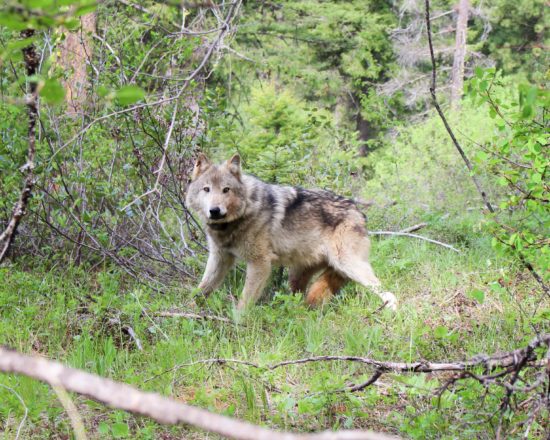
Judge Hears Arguments On Latest WDFW Wolf Removal Lawsuit
A King County judge will take a week or so to mull arguments for and against WDFW removing problem wolves in Eastern Washington after a court hearing in Downtown Seattle today.

“He wants to think about it a little longer,” said agency spokeswoman Staci Lehman about Superior Court Judge John McHale’s review of yet another lawsuit over whether WDFW should have done a State Environmental Policy Act review before killing wolves that attack cattle, sheep and other domestic stock in the federally delisted eastern third of Washington.
This latest one focuses on 2019’s removals of the Old Profanity Territory Pack and was filed by two King County residents — Genevieve Jaquez-Schumacher and John Huskinson — and Tim Coleman of Ferry County.
Their attorney likened it to a “kill program” that should have been run through SEPA for what the Capital Press paraphrased as a “big-picture look at the cumulative effects of killing wolves.”
A similar lawsuit over 2018 removals and filed by out-of-state pro-wolfers was partially dismissed by Thurston County Superior Court Judge John C. Skinder in early November.
In that latter case, WDFW argued that taking out livestock-attacking wolves falls “squarely within several SEPA categorical exemptions” and pointed to state Supreme Court case law, state statutes and administrative codes.
The agency says that its lethal removal protocols — arrived at after extensive input from members of its Wolf Advisory Group — “flow from” its 2011 Fish and Wildlife Commission-approved management plan for the species.
While Judge Skinder issued his decision to dismiss SEPA claims the same fall day as that hearing, WDFW’s Lehman says it’s not unusual for judges to take some time to consider the arguments.
“The ruling will be made in writing by either next Friday or the following Monday and all parties involved will not have to go back to court for that,” she said.
Washington’s wolf population has grown every year since the first pack was confirmed in 2008 and despite WDFW lethal operations to try and head off continued livestock depredations in 2012, 2014, 2016, 2017 and 2018.

